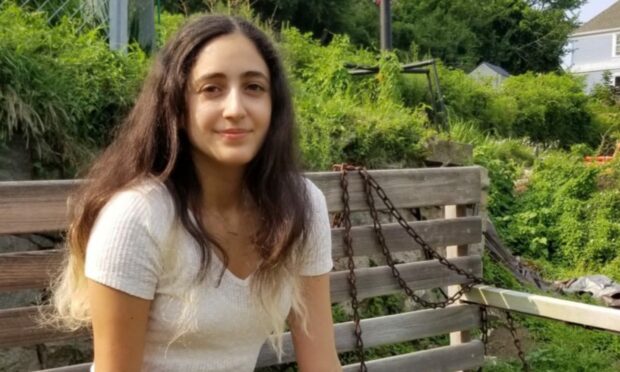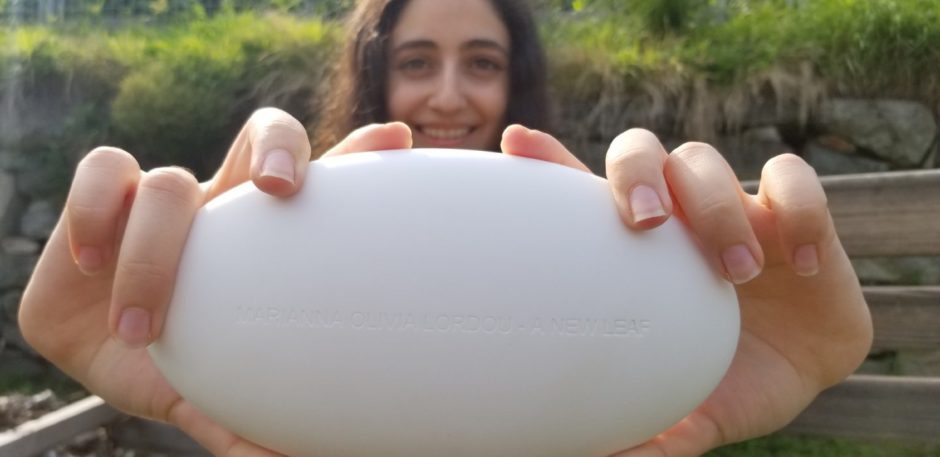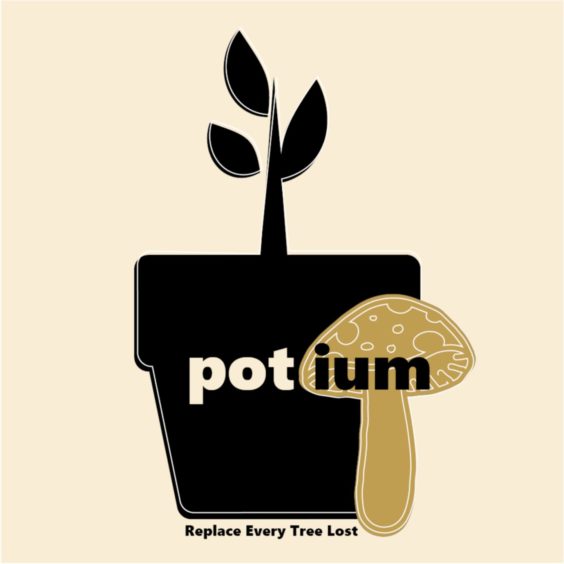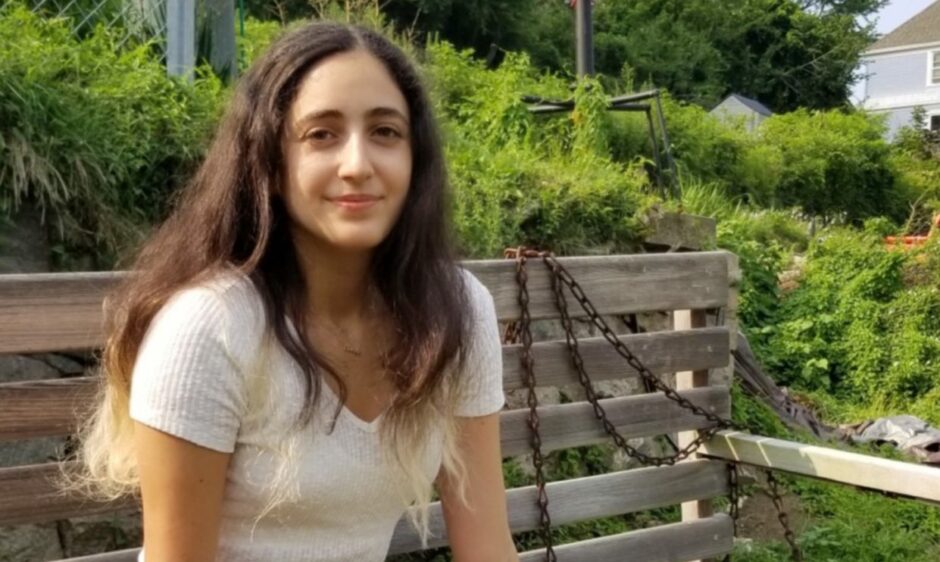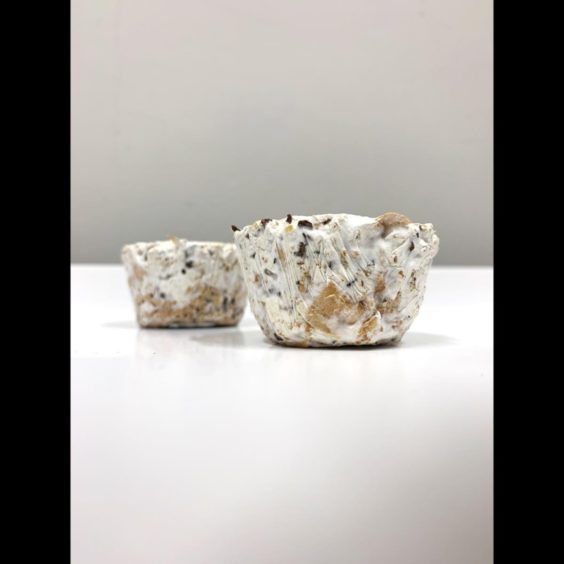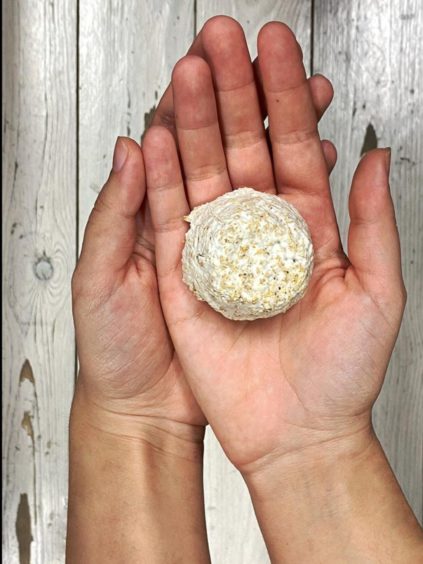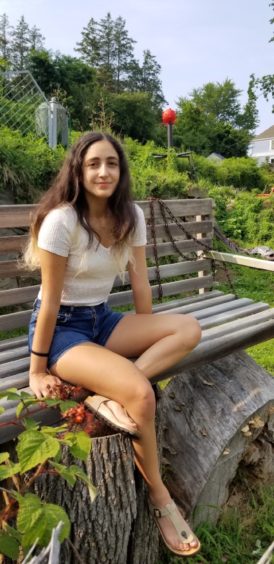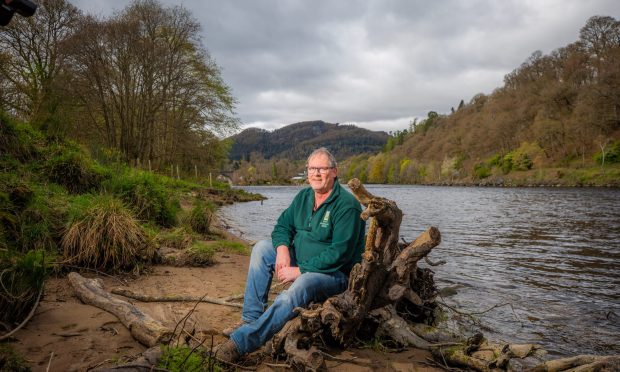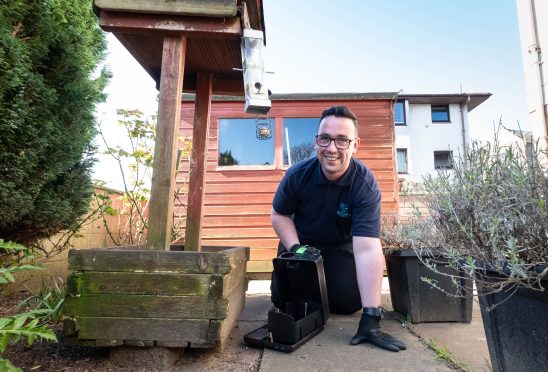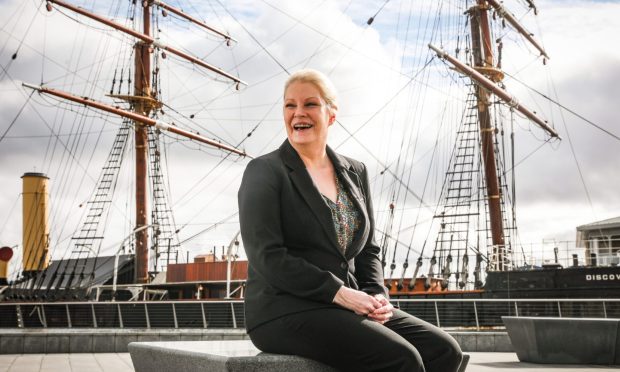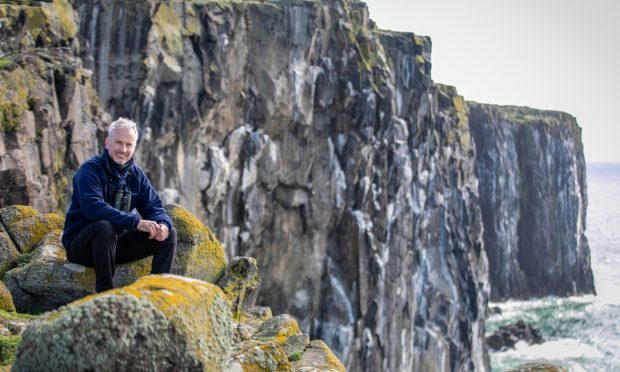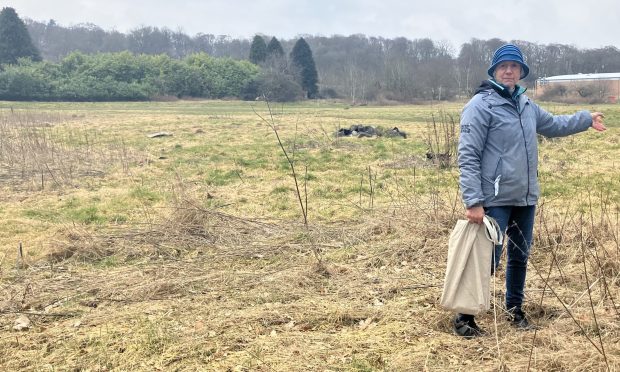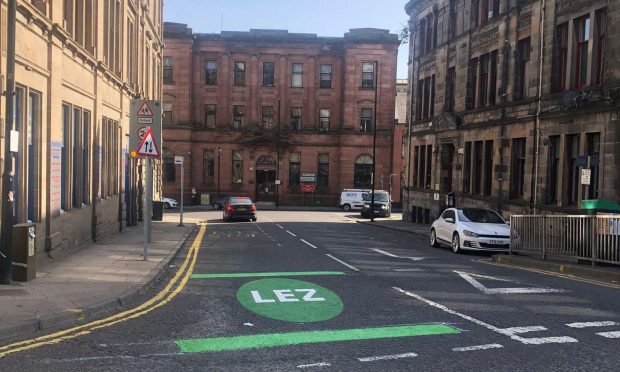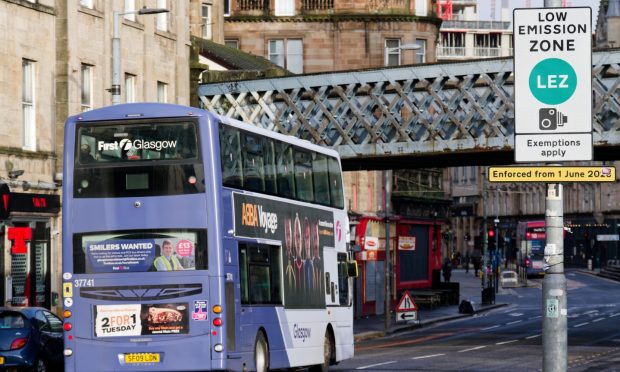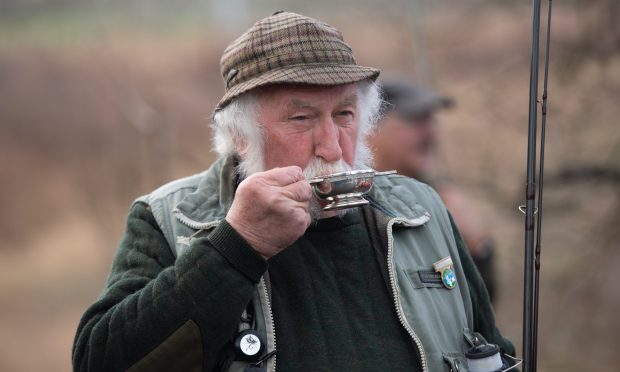Michael Alexander speaks to award-winning Dundee University student Marianna Lordou who recently clinched a prestigious RSA Student Design Award for her proposal to solve a ‘real world’ global environmental problem.
Like many young people, Dundee University student Marianna Lordou has ambitions to change the world for the better.
And having just won a prestigious Royal Society of Arts prize with her proposal to solve a “real world” environmental problem, the 21-year-old has taken a significant step in that direction.
New Leaf competition
Marianna, 21, who is going into her fourth and final year studying product design at Duncan of Jordanstone College of Art and Design after the summer, was recently announced as the joint winner of ‘A New Leaf’ competition – part of the 2021 RSA Student Design Awards.
It’s a global competition that challenges students to apply their skills and creativity to tackle today’s most pressing social and environmental issues.
In response to the question ‘How might we utilise local woodland resources to stimulate inclusive and sustainable economic activity?’, Marianna came up with Potium – a facility which converts infected waste from mandatory felling measures in response to Phytophthora Ramorum.
This is a fungus-like tree disease which can cause death for more than 150 plant species in the UK.
Once identified, trees affected by the incurable disease require felling.
They are then burnt to prevent further spread. It’s a process that causes significant waste.
Marianna developed Potium in an attempt to curb some of this waste and support replanting efforts at the same time.
Potium uses the waste material from felled trees, which can be pulped and turned into biodegradable plant pots.
These can serve as plastic-free alternatives to traditional plant pots, and can be returned to the ground through planting, adding nutrients back to the soil in the process.
Marianna was inspired to develop this course of action because Larch trees in Scotland are particularly susceptible to the disease.
As such, a lot of waste is created in dealing with outbreaks.
She explains that by developing waste management systems like this one, jobs can be supported, waste can be stopped and better woodland management encouraged.
Of all the designs she’s ever thought of, however, it’s the “real world” global nature of this design brief that really inspired her.
“I was really driven by the real-world nature of designing a solution to this problem,” says Marianna.
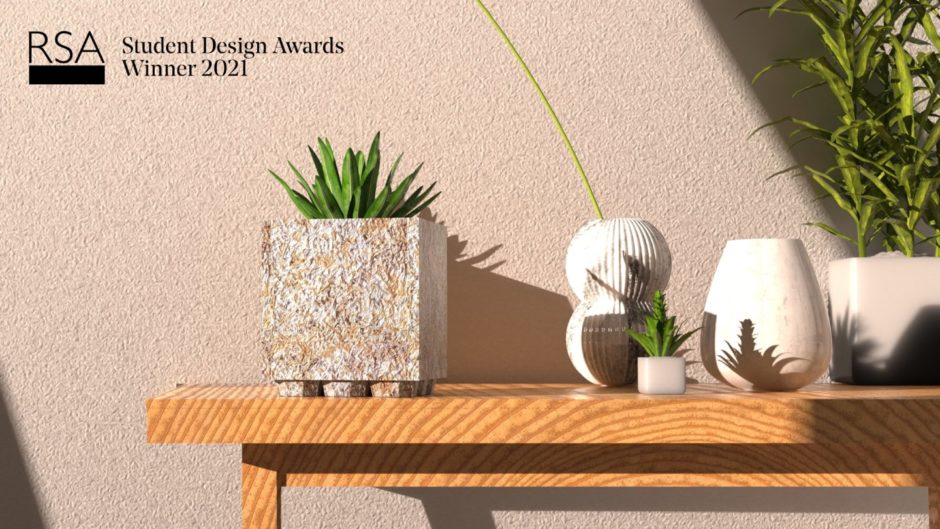
“The interesting thing about tree, and all, epidemics is that they will always come and go. It’s inevitable, especially with our unstable climate.
“My proposal analysed the human response to those epidemics and the systems in place to treat those epidemics.
“My proposal interlinks to that pre-existing system and tries to do something without waste that is being precautionary throughout the year.
“The traits you see for this specific disease will also be present for diseases in other parts of the world, hundreds of years from now.
“That’s another important part of my proposal. It’s adaptable and it can be applied to many situations.”
Design-centric household
Born and raised in Cyprus, Marianna grew up in a design centric household.
With both parents working as architects, she developed an early fascination with art and design and pursued this as a subject in both primary and secondary school, where she attended the American International School in Nicosia.
In 2018, she started studying for a BSc in product design at Duncan of Jordanstone College of Art and Design.
She’d never been to Scotland let alone Dundee before. But when she researched the university and the course, and then visited with her dad, she knew it was the right choice for her.
In terms of the course, she liked the way that young aspiring designers were exposed to different fields like physics, computing and structural mechanics at an early stage. She also liked the culture of exchanging ideas.
In terms of wider Dundee, she felt immediately at home because she’s a “small town girl really” and felt comfortable in the relatively compact student city.
Of course, the last 14 months have brought challenges with lockdowns forcing many students to work from home.
However, Marianna, who ended up working remotely from home in Cyprus, is grateful to her lecturer Sara Nevay for guiding her through the RSA brief during these challenging times.
Marianna didn’t expect hers to be a winning entry considering the circumstances.
But when she did win, she says it was “surreal” and she’s grateful for the support she received from the university.
Passion
“During my senior year in high-school, I couldn’t decide what to study at university,” she adds.
“I had a deep passion for biology, as well art and design.
“This brief allowed me to combine both of those passions together.
“By integrating live organisms such as mycelium into my design proposal, I have come to the realization that design is everything, and involves various different fields and complex systems.
“I’m proud to have combined bio-tech and design to propose a solution to pressing societal and environmental issues, and I aim to embrace this multi-disciplinary approach to my designs in the future.”
Design influences
Mariana doesn’t agree with everything said by the late futurist and self described social engineer Jacque Fresco.
However, there’s one quote by him that really inspires her as a designer.
“He once said: ‘A genius is a person that has been exposed to many different systems, therefore they can come up with a wide range of solutions’,” she says.
“That’s something I always try to keep in mind when I embark upon a new design journey, because a designer who does not acknowledge those affected systems will inevitably fail to come up with a working solution.
“Other geniuses of our time like (Thomas) Edison didn’t just pop up with their ideas out of nowhere.
“They were influenced by other people in different fields and I feel like that’s a life lesson for me.
“Every time I’m given the opportunity to learn something new, I will go for it, because whether I see it now or not, it will benefit me in the future.”
The future
Looking to the future, Marianna has ambitions to get a working visa in the USA and maybe work with Ecovative Design biotech company, headquartered in New York.
The materials company provides sustainable alternatives to plastics and polystyrene foams for packaging. Building materials and other applications by using mushroom technology.
With Covid-19 having promoted a remote lifestyle for product design, she believes the options for remote working are endless. It’s left her feeling hopeful.
Past winners
The RSA’s competition is the longest running of its kind in the world. Past winners of the accolade include former Apple chief design officer Jony Ive, former Nike head of innovation Richard Clarke and co-founder of IDEO and designer of the first laptop Bill Moggridge.
This year marked the 97th edition of the awards. The winning projects, according to RSA director of design and innovation Joanna Choukeir, are evidence that applicants have their fingers on the pulse of “pressing social and environmental challenges” and are “thinking and acting in the long term”.
Students were offered eight briefs, covering issues like redistributing health access, supporting local woodland, and bridging the divide of social media.
The other joint winner in her category was Harry Peck, studying for a BA in 3D Design at Northumbria University in England.
His concept was Raw Furniture – a sustainable timber furniture range grown and crafted in Cornwall utilising an array of tree species and their unwanted offcuts, with a manufacturing process committed to supporting and celebrating the diversity of local woodlands.
The winning designs impressed the judging panel with their consideration for sustainability, sharp design and use of local resources, in particular forests, supporting communities and protecting woodlands.
